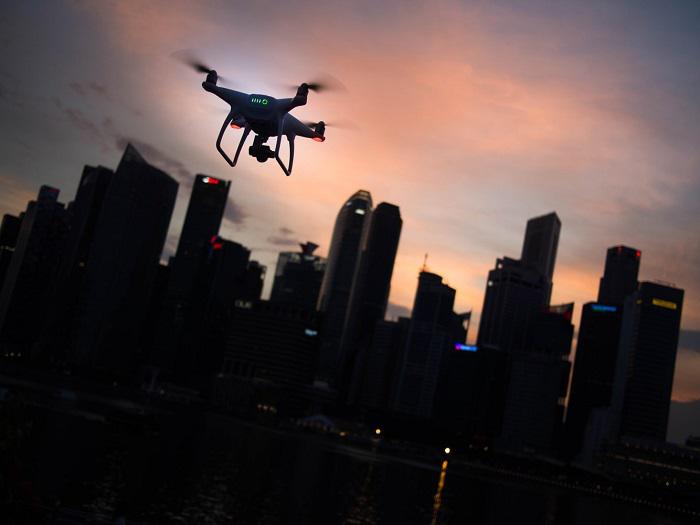
Rakuten, Inc., as a member of the Hakuba Mountain Drone Logistics Committee, has conducted a successful demonstration of delivering supplies via drone flight beyond visual range at an altitude difference of up to approximately 1600m from Sarukuraso (altitude 1250m) at the foot of Mt. Shirouma in Nagano Prefecture’s Hakuba to the mountain huts Hakuba Sanso (2832m) and Hakubadake Chojoshukusha huts (2730m) located at the top of Mt. Shirouma.
This trial marks the first time that supplies have been delivered by drone in a mountainous region in Japan where the difference in altitude between takeoff and landing locations reached approximately 1600m.

The month-long trial was conducted from mid-August to mid-September of this year. The goal of the Hakuba Mountain Drone Logistics Committee, comprised of 11 companies, organizations and municipalities, including the village of Hakuba in Nagano Prefecture, was to overcome challenges in delivering supplies to mountainous regions, with Rakuten being responsible for the provision of drone delivery solutions and operations.
This delivery was made over a route approximately 5km long, from Sarukuraso (1250m) at the foot of Mt. Shirouma (2932m) in Hakuba, to one of Japan’s highest mountain huts, Hakuba Sanso (2832m) at the summit and Hakubadake Chojoshukusha hut (2730m).
The Rakuten drone managed to deliver peaches and pears — fruits easily damaged by vibrations — and other supplies weighing up to 5kg without any damage. Additionally, the time for this delivery, which takes around seven hours using traditional methods such as carrying supplies on foot, was reduced to around 15 minutes via drone flight. On the return trip from Hakuba Sanso to Sarukuraso, scrapped construction materials were loaded into a delivery box and delivered back.
The alpine village of Hakuba faces significant challenges in transporting goods between mountain huts. Currently, staff either carry supplies on foot or have supplies delivered via helicopter. However, the cost of helicopter transport, which has been replacing foot deliveries due to dangerous trails, is rising sharply.
Moreover, the flight route to Hakuba Sanso crosses complex geological features that cause sudden updrafts and downdrafts. Due to the thinner atmosphere at this altitude, maintaining a precise flight path requires an aircraft with strong aerodynamic lift, which can make helicopter flights impossible in poor weather.
Given the danger of mountain huts becoming isolated in the event that deliveries cannot be made, the Drone Logistics Committee has been trialing drones, which are a more efficient and less risky way of delivering supplies than traditional methods, since 2018.
Rakuten joined the Committee this year to help solve problems unique to mountainous terrain, such as drone flight range and wireless communication, and to take responsibility for providing unmanned delivery solutions. The company contributed to the success of this demonstration by applying the expertise it has built up over previous trials and services.
One of Rakuten’s business goals is to support people with logistics challenges via drone delivery. To date, the company has conducted demonstrations and provided new logistics solutions in 12 prefectures across Japan to aid people living on remote islands and other areas without easy access to supplies.
As the challenges facing Hakuba are shared by mountainous regions around the country, Rakuten will look to apply the knowledge gained from the success of this alpine trial to expand the provision of drone delivery solutions across Japan. The company also aims to establish operations that can be run by local community staff, thereby generating local employment.
Rakuten will continue to provide services and conducts trials that contribute to the adoption of logistics services utilizing promising new delivery methods based on drones.









